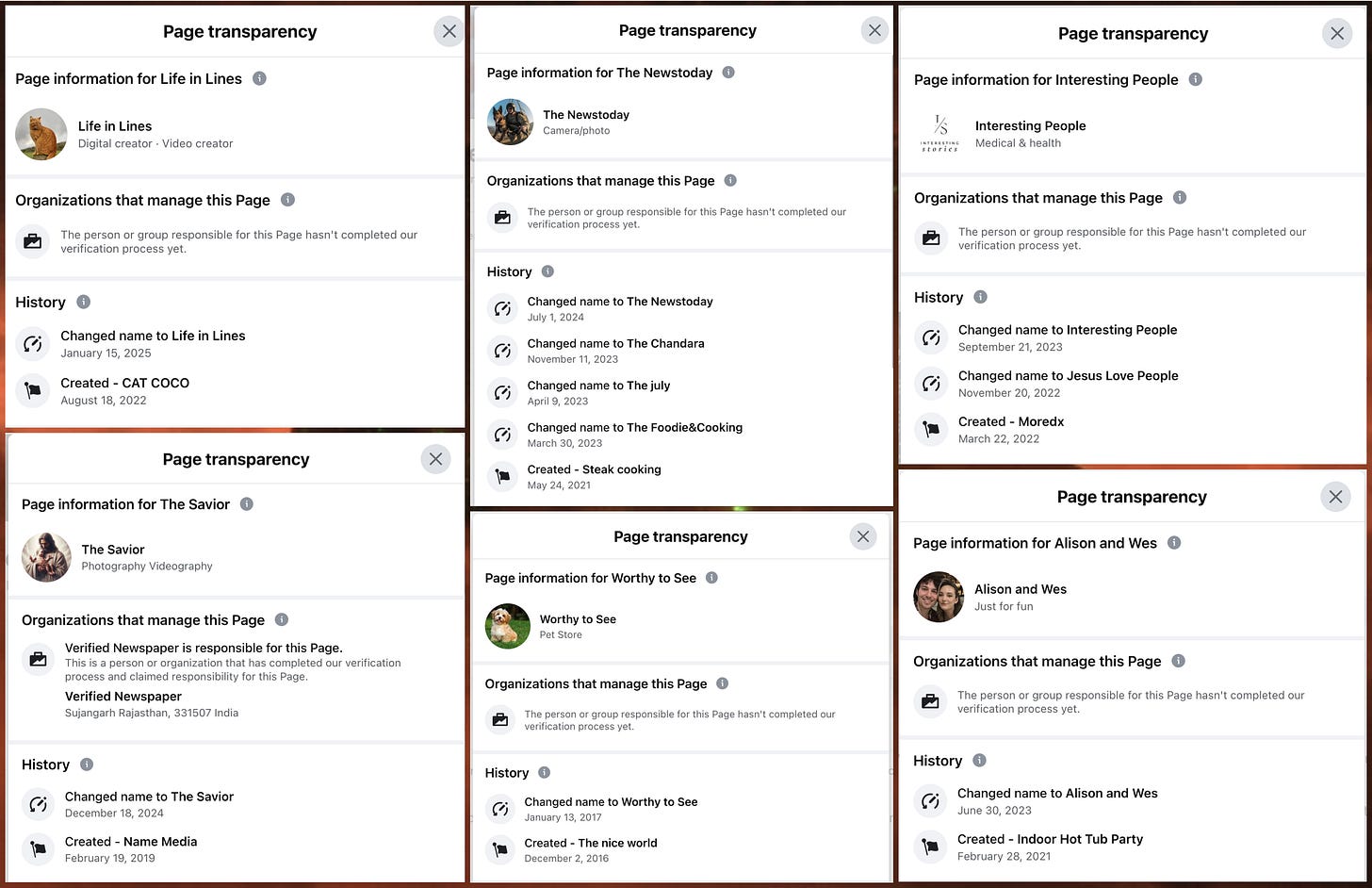Antisocial media
The emotionally manipulative side of the Facebook AI slop treadmill
If you’ve ever baked a massive loaf of bread shaped like a rabbit, or carved intricate wooden sculptures of giant wildlife, you know how much time and effort can be involved in meticulously crafting a work of art. It’s therefore quite understandable that these images of people sadly pondering the lack of public appreciation for their work have gone viral, tugging at the heartstrings of many a Facebook user. This sympathy is wasted, however, as none of these elaborate creations are real; all are AI-generated images that required no effort on the part of the poster beyond coming up with an appropriate prompt to generate the desired output.
Over the last several days, I’ve been served content of this sort from eighteen different accounts by Facebook’s recommendation algorithm. These accounts, which have names like “For Share”, “Nice smile”, and “Cute Babies”, also post several other varieties of AI-generated images, frequently racking up significant engagement. A few of the accounts also post memes and real photos here and there. In contrast with some other Facebook AI image spam operations, the synthetic images posted by these accounts usually have some sort of emotional hook, as opposed to simply posting “pretty” scenery or buildings.
Birthdays are one of the most common themes of the accounts’ AI-generated images. The birthday images generally include people holding birthday cakes, accompanied by sorrowful captions such as “This 10-year-old boy has a cake but no friends. I don’t think anyone’s going to wish him a happy birthday” and “I made cake, every detail with love, but it seems like no one cares”. The AI-generated people having the alleged birthdays are usually either children or over the age of 100, with few in between.
Several of the accounts post fake images of soldiers, frequently holding cardboard signs expressing loneliness for home or (as with the cake images) announcing a birthday. Many of these signs contain spelling errors such as “birthdday”, “misssed”, and “famillly”, and in some cases letters are rendered incorrectly, such as the “m” with an extra hump in the image on the left. Other glitches, such as malformed flags, are present as well.
AI-generated scenes of people (frequently children) holding freshly-picked produce are another recurring theme. Many of these images have depressing captions like “but no one even greets us, just because we work in the fields”. Artifacts such as unrealistic teeth, nonsensical text, and a geometrically impossible van show up in several of the images.
In an interesting twist, at least two of the accounts (“My Sweet Baby” and “Cute Babies”) sometimes post AI-generated images accompanied by fictional anecdotes several paragraphs in length. The source of these anecdotes is unclear, although it would not be surprising to learn that they were generated using large language models, due to the bland and self-similar writing style as well as the accounts’ overall penchant for generative AI use. Some of the anecdotes have also been posted on other Facebook pages.
These eighteen Facebook accounts largely draw from the same pool of AI-generated content, with almost all of the images posted by more than one account, and each account having posted multiple images that were also posted by at least one other account. The captions are frequently recycled, although sometimes different accounts post the same image with different captions. In addition to the repetition across accounts, individual accounts also sometimes post the same images over and over.
A few of these accounts have pivoted from other forms of AI-generated image spam, mostly food. In one case, “Tips & Tricks Recipes”, the operator of the account doesn’t seem to have gotten around to changing the page name to reflect the new lineup of content as of yet. In another, “Life in Lines”, the account initially posted cat photos before switching to AI slop.
Six of the eighteen pages have been renamed at least once, with the most recent name change, from “CAT COCO” to “Life in Lines”, happening less than a month ago. It is unclear at present whether these name changes are the result of spammers taking over other people’s accounts, or simply renaming and redecorating accounts already under their control (or a mix of both). The pages are (allegedly) managed from a variety of locations, including the USA, India, Armenia, Cambodia, Spain, Morocco, Algeria, Canada, and Romania.
At least four of the AI spam pages, “Life in Lines”, “The Savior”, “Interesting People”, and “Amusing Stories”, occasionally post religious content. These posts are a mix of religious memes and AI-generated images of Jesus, who is variously depicted holding a puppy and a baby. In the case of the “Interesting People” account, some of the religious content also has political overtones; specifically, praise for Republicans. Although some of the political posts contain real photographs, AI-generated images show up too, including a rendering of a six-fingered Donald Trump in a church.












